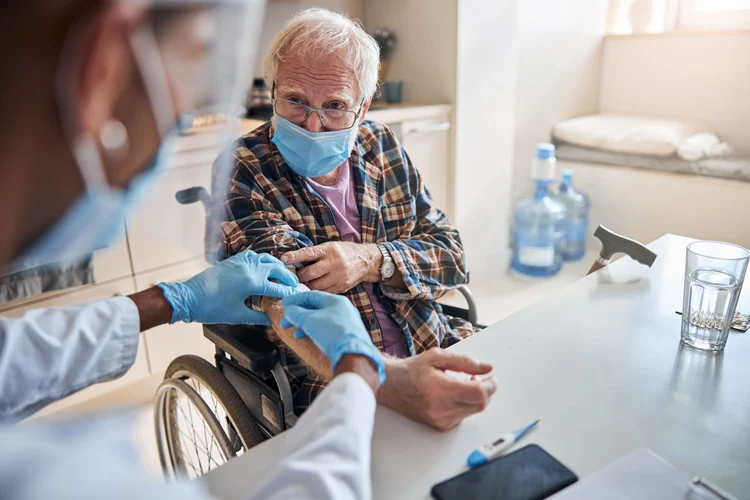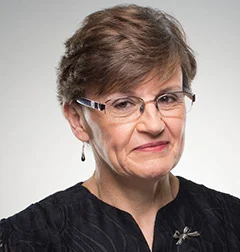
The COVID-19 Vaccine roll out, Enduring Guardians and Aged Care Residents – How will decisions be made about vaccination for those unable to choose for themselves?
Published on February 19, 2021 by Dianne Retief, Gillian Kirwan and Josephine Heesh
Introduction
The NSW Premier, Gladys Berejiklian, has announced that the roll-out of the COVID- 19 vaccine will commence on Monday 22nd February with 35,000 frontline workers expected to be vaccinated within the next three weeks. In NSW the first people to receive a COVID-19 vaccine will also include residents and staff of residential aged and disability care facilities.
Whilst the vaccine is not mandatory, health officials are strongly recommending its uptake.
What about when a person eligible for vaccine is no longer capable of making a decision whether to take it or not?
In cases where an aged care resident is eligible to receive the vaccine but is no longer able to make their own decision, the aged care operator will look to the person holding an ‘enduring guardian’ appointment to make this decision on that person’s behalf.
How does the Guardian make the decision to vaccinate or not?
The appointed Guardian can make decisions relating to healthcare and medical treatment the resident can receive[1]. As with any medical decision, a Guardian must always take advice from the resident’s medical adviser and ask questions to be certain they can give informed consent.
So, how does the Guardian decide whether consenting to the vaccination is the correct decision to make?
If prior to losing capacity, the resident had advised their Guardian of their wishes with respect to the COVID-19 vaccine, or vaccines generally, this should guide the Guardian in their decision.
In cases where no discussion occurred and is no longer possible, it is critical that the guardian informs themselves of the potential risks and benefits of the relevant vaccine, the risks of not having it, and any alternative options that may be available.
Consent to vaccinate
Consent a Guardian gives for an incapacitated aged care resident must be ‘informed’ consent so vaccination information will be provided by the Residential Aged Care Facility to the Guardian to help them with making a decision. In addition, the Facility will also determine the suitability of the resident to participate.
The Residential Aged Care Facility will be required to assess each resident on the day the vaccine is intended to be administered, to confirm that the resident is well enough to be given the vaccine.
What happens if you choose not to be vaccinated?
If the Guardian (on behalf of the resident) declines to participate in the vaccine program, then no further action should be taken.
A Guardian should not be subjected to pressure, coercion or manipulation if they decide the individual is not to receive the vaccine. Nor should such a decision impact the individual’s ongoing access to safe, quality residential aged care. The Charter of Aged Care Rights[2] supports older people in their decisions about what care they receive including decisions made on their behalf by their Guardian.
How is this to be balanced against the duty of care the Facility owes to all other residents?
During the pandemic many Facilities have administered influenza vaccine to all residents by emphasising the benefit to each individual and all of their fellow residents. Perhaps that is the most they will be free to do to encourage universal take up of the COVID-19 vaccine in their Facility.
The Government also advises that if a resident’s Guardian decides not to consent to vaccination, this decision should not affect the individual’s government payments however, this position could change given the precedent of the “No Jab, No Pay” policy which reduced access to some government payments where children’s vaccinations were not up to date.
Conclusion
We strongly recommend that if you are an appointed Guardian, you have a discussion, if possible, with the individual about the pros and cons of the vaccination and ask them if they wish to be vaccinated when the time comes.
It is important that a Guardian also makes an informed decision based on up to date information and in making this decision (with or without consultation with the relevant individual), a Guardian should also seek the advice of the individual’s GP who would be aware of the individual’s medical history and specific needs. This may also assist a Guardian or family member, to persuade or dissuade the still capable individual who is discerning for themselves whether to have or refuse the COVID-19 vaccine. See below some helpful links:
Consent Guidance Material for Residential Aged Care
[1] Section 6E(d) of the Guardianship Act 1987 (NSW)


